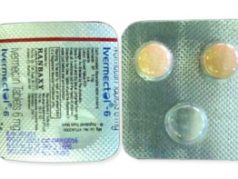Alfacalcidol

Alfacalcidol
- In our pharmacy, you can buy alfacalcidol without a prescription, with delivery in 5–14 days throughout Australia. Discreet and anonymous packaging.
- Alfacalcidol is used to manage conditions caused by vitamin D deficiency, such as osteomalacia and renal osteodystrophy. It works by promoting calcium absorption from the gut and reabsorption in the kidneys.
- The usual dose of alfacalcidol is typically 0.5 to 1 mcg daily, depending on medical advice.
- The form of administration is oral drops or capsules.
- The effect of the medication begins within 1-2 days.
- The duration of action is approximately 24 hours.
- It is recommended to avoid excessive alcohol consumption while on this medication.
- The most common side effect is hypercalcaemia (high levels of calcium in the blood).
- Would you like to try alfacalcidol without a prescription?
Basic Alfacalcidol Information
- INN (International Nonproprietary Name): Alfacalcidol
- Brand Names Available in Australia: One-Alpha, Alfacalcidol
- ATC Code: A11CC04
- Forms & Dosages: Soft gelatin capsules, oral drops (0.25 mcg, 1 mcg)
- Manufacturers in Australia: Various manufacturers including international and local brands
- Registration Status in Australia: Registered as a prescription medication
- OTC / Rx Classification: Prescription only (Rx)
Critical Warnings & Restrictions
Alfacalcidol is a prescription medication with specific safety warnings crucial for Australian patients. It is contraindicated in cases of hypercalcemia and those with hypersensitivity to its components. Patients with chronic kidney disease, especially those with impaired renal function, must use it cautiously, as it can exacerbate hypercalcaemia.
High-Risk Groups (Elderly, Pregnancy, Chronic Illness)
Certain populations should exercise caution when using alfacalcidol. Elderly patients may be particularly susceptible to adverse effects due to their diminished physiological reserves. Pregnant women are advised to avoid alfacalcidol unless absolutely necessary since the effects on fetal development have not been thoroughly studied. Those with chronic illnesses, such as heart disease or diabetes, should consult healthcare professionals prior to use to assess risks.
Interaction With Activities (Driving, Workplace Safety Under Australian Law)
Dizziness and fatigue are possible side effects of alfacalcidol that may hinder a patient's ability to drive or operate machinery safely. It's paramount that individuals evaluate their response to the medication before partaking in such activities. Under Australian law, ensuring workplace safety includes being aware of any medications affecting one's ability to work safely. If experiencing any such side effects, alternative arrangements should be made until clarity on the medication's impact is achieved.
Q&A — “Can I Drive After Taking It In Australia?”
- Q: Can I drive after taking alfacalcidol?
- A: It's advisable to avoid driving if you experience dizziness or fatigue after taking alfacalcidol. Consult your doctor for further guidelines regarding your specific situation.
Interaction Chart
Understanding potential interactions is vital for safe alfacalcidol use.
Food and drinks (alcohol, coffee, Australian diet context)
When taking alfacalcidol, it's essential to be mindful of dietary choices, particularly alcohol and caffeine intake.
Excessive alcohol can disrupt calcium metabolism, which could hinder the effectiveness of alfacalcidol. It is advisable to limit alcohol consumption to ensure optimal treatment results.
Caffeine, commonly found in coffee and energy drinks, may also interfere with calcium absorption. Therefore, moderate coffee intake is recommended while undergoing treatment with alfacalcidol.
- Monitor calcium-rich foods typical in Australian diets, such as dairy.
- Pay attention to any unusual symptoms that could suggest an interaction.
By balancing these dietary factors, patients can better support their treatment with alfacalcidol and enhance overall health.
Common drug conflicts
Alfacalcidol may engage in interactions with common medications, potentially increasing the risk of hypercalcaemia. Medications to be cautious of include:
- Thiazide diuretics
- Anticonvulsants
- Corticosteroids
It's crucial for patients to inform healthcare providers of all medications, including over-the-counter supplements, to avoid any adverse effects while using alfacalcidol.
User Reports & Trends
Feedback from Australian patients regarding alfacalcidol shows a generally positive reception.
Many individuals report effective management of vitamin D deficiency and associated conditions, with improvements in bone health and calcium levels. This feedback commonly appears on forums like ProductReview.
However, some concerns like nausea as a side effect are repeatedly mentioned, reminding patients to stay in communication with their healthcare teams for any reported symptoms during treatment.
Access & Purchase Options
Australian patients can conveniently access alfacalcidol through various pharmacies and healthcare providers, ensuring an easier pathway to treatment.
National chains (Chemist Warehouse, Priceline, TerryWhite)
Major pharmacy chains, including Chemist Warehouse, Priceline, and TerryWhite Chemmart, stock alfacalcidol in both prescription and over-the-counter forms. Patients can seek assistance from pharmacy staff to find the right variant suitable for their needs and receive guidance on usage.
Online pharmacies and telehealth e-prescriptions
For those living in rural areas, online pharmacies provide a valuable option to obtain alfacalcidol without the need to travel. Telehealth consultations are gaining traction, allowing patients to get prescriptions promptly from healthcare providers while reducing in-person visits.
Mechanism & Pharmacology
Alfacalcidol, as a pro-drug of calcitriol, plays a crucial role in regulating calcium and phosphate metabolism.
Simplified explanation
Upon administration, alfacalcidol is converted into calcitriol, which is the active form of vitamin D within the body. This conversion enhances the absorption of calcium and phosphate in the intestines while facilitating their reabsorption in the kidneys.
This mechanism makes alfacalcidol effective for conditions like renal osteodystrophy, where maintaining proper calcium levels is essential.
Clinical terms
From a medical perspective, alfacalcidol exerts its pharmacological action mainly on the endocrine system, particularly influencing parathyroid hormone (PTH) levels.
By mitigating the effects of PTH, alfacalcidol helps to balance calcium levels, counteracting excessive calcium release from bones. It supports the maintenance of optimal calcium homeostasis essential for overall health.
Indications & Off-Label Uses
Primarily, alfacalcidol is indicated for specific conditions in Australia, as recognised by the TGA (Therapeutic Goods Administration).
Approved indications by TGA
The TGA has approved alfacalcidol for managing renal osteodystrophy and hypoparathyroidism. It is particularly beneficial for patients facing vitamin D deficiency, especially those with chronic kidney disease.
Off-label uses in Australian clinical practice
Beyond its approved indications, alfacalcidol might also be considered off-label for conditions like osteoporosis or unique scenarios requiring vitamin D supplementation. Consulting a healthcare practitioner for off-label usage is always advisable to ensure safety and efficacy.
Key Clinical Findings
Recent studies have cast a spotlight on alfacalcidol, showcasing its effectiveness and safety across various medical conditions. Alfacalcidol, a synthetic analogue of vitamin D, is beneficial for patients with deficiencies related to calcium and bone metabolism. Its role in managing secondary hyperparathyroidism, particularly in patients with chronic kidney disease, is notable. This compound aids in improving calcium absorption in the gut and enhancing bone mineral density. In addition, clinical observations suggest that alfacalcidol is a potentially valuable treatment option for preventing hypocalcaemia in individuals undergoing dialysis. Furthermore, data suggests that the side effects associated with alfacalcidol are minimal. Most patients report only mild gastrointestinal complaints, reinforcing the importance of regular calcium level monitoring when prescribed this medication. Overall, these findings highlight alfacalcidol’s promise as a safe, effective solution for managing specific medical conditions characterised by calcium deficiencies.Major Australian and International Studies 2022–2025
Clinical trials conducted between 2022 and 2025 reveal that alfacalcidol significantly enhances bone mineral density in patients with chronic kidney disease. Australian studies are particularly informative, emphasising its utility in reducing the manifestations of hypocalcaemia among those undergoing dialysis. Observational studies point out that the adverse effects are usually limited to mild digestive complaints. This adds a layer of reassurance, indicating that with proper guidance and monitoring, alfacalcidol can be safely integrated into treatment plans for patients facing challenges related to calcium management. Regular assessments of calcium levels are essential to optimise patient outcomes and ensure safe medication use.Alternatives Matrix
When it comes to alternatives to alfacalcidol, various options exist, each catering to different therapeutic needs.PBS-listed Alternatives Comparison Table
| Alternative | Indication | Key Features |
|---|---|---|
| Calcitriol | Secondary hyperparathyroidism | Directly active form of vitamin D |
| Ergocalciferol | Vitamin D deficiency | Alternative vitamin D source |
| Calcium carbonate | General calcium supplement | Used alongside vitamin D for improved absorption |
Pros and Cons Checklist
- Alfacalcidol: Pros - Effective for specific deficiencies; Cons - Risk of hypercalcaemia
- Calcitriol: Pros - Fast-acting; Cons - More expensive
- Ergocalciferol: Pros - Accessibly priced; Cons - May require higher doses
Common Questions
Addressing common inquiries can greatly enhance patient understanding of alfacalcidol.FAQs from Australian Pharmacy Consultations
Q: How long will I need to take alfacalcidol? A: The duration of treatment varies based on individual medical conditions; regular monitoring will guide the treatment plan. Q: What should I do if I experience side effects? A: It's important to contact your healthcare provider immediately if you encounter symptoms such as persistent nausea or abdominal pain.Suggested Visual Content
Visual aids can greatly assist in improving patient knowledge and comprehension.Infographics: PBS Pricing, Pharmacy Network Map
Suggested infographics should include: - **PBS Pricing**: A breakdown of costs for alfacalcidol under PBS to clarify patient out-of-pocket expenses. - **Pharmacy Network Map**: A visual depiction of pharmacy locations across Australia where alfacalcidol is available, emphasising access for those in rural areas.Registration & Regulation
Understanding the regulatory landscape surrounding alfacalcidol in Australia is crucial for both patients and healthcare providers.TGA Approval
Alfacalcidol has received TGA approval as a prescription medication tailored for specific indications. Compliance with TGA guidelines during prescription and dispensing is essential.PBS Subsidy Details
Under the PBS, alfacalcidol is subsidised for eligible patients with chronic conditions, providing broader access. Familiarity with PBS guidelines enables patients to seek financial assistance for their prescriptions.Storage & Handling
Proper storage and handling are vital to preserving the efficacy of alfacalcidol.Household Storage in Australian Climate
Alfacalcidol should be stored in a cool, dry location, shielded from direct sunlight and moisture, as these factors can degrade the medication. In Australia's humid regions, using airtight containers is critical for safeguarding its integrity.Cold-chain Handling for Pharmacies
Pharmacies must adhere to cold-chain protocols for any liquid forms of alfacalcidol to ensure its potency. Staff training in correct handling techniques is crucial for compliance with pharmacy regulations.Guidelines for Proper Use
Following guidelines is essential to ensure alfacalcidol is utilised safely and effectively.Australian Pharmacist Counselling Style
Pharmacists are encouraged to provide thorough counselling on alfacalcidol, which includes reviewing dosage, potential side effects, and food or medication interactions. Reinforcing the importance of sticking to prescribed regimens, along with regular progress monitoring, benefits patient outcomes.Patient Advice from PBS and National Health Authorities
Patients ought to receive educational materials detailing the benefits, potential side effects, and lifestyle considerations associated with alfacalcidol. Regular follow-ups with healthcare providers are integral for monitoring treatment outcomes, with information readily available through PBS and health department resources.Delivery Information Table
| City | Region | Delivery Time |
|---|---|---|
| Sydney | New South Wales | 5–7 days |
| Melbourne | Victoria | 5–7 days |
| Brisbane | Queensland | 5–7 days |
| Perth | Western Australia | 5–7 days |
| Adelaide | South Australia | 5–7 days |
| Hobart | Tasmania | 5–9 days |
| Canberra | Australian Capital Territory | 5–7 days |
| Darwin | Northern Territory | 5–9 days |
| Gold Coast | Queensland | 5–7 days |
| Newcastle | New South Wales | 5–9 days |
| Central Coast | New South Wales | 5–9 days |
| Cairns | Queensland | 5–9 days |
| Wollongong | New South Wales | 5–9 days |
| Sunshine Coast | Queensland | 5–9 days |









